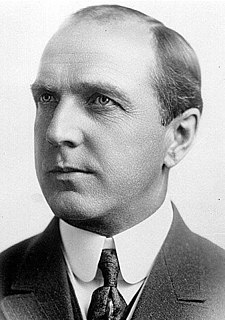A Quote by Robert M. Gates
In government, I'm a strong believer in the need for reform of government agencies and departments. They - they have gotten fat and sloppy, and they're not user friendly. They are inefficient. They cost too much.
Related Quotes
One of the reasons some of the advocates of ever larger government and more government intrusiveness get nervous about discussions of the actual cost of government is that they fear if the people had a discussion about what government costs, the true cost of taxes, that they might not want as much government as they are presently getting.
Year after year in Washington, budget debates seem to come down to an old, tired argument: on one side, those who want more government, regardless of the cost; on the other, those who want less government, regardless of the need....Government has a role, and an important role. Yet, too much government crowds out initiative and hard work, private charity and the private economy....Government should be active, but limited; engaged, but not overbearing.
I'm not in favor of no government. You do need a government. But by doing so many things that the government has no business doing, it cannot do those things which it alone can do well. There's no other institution in my opinion that can provide us with protection of our life and liberty. However, the government performs that basic function poorly today, precisely because it is devoting too much of its efforts and spending too much of our income on things which are harmful. So I have no doubt that that's the major single problem we face.
Government is not a solution to our problem, government is the problem. ... Government does not solve problems; it subsidizes them. Government's view of the economy could be summed up in a few short phrases: If it moves, tax it. If it keeps moving, regulate it. If it stops moving, subsidize it. ... The problem is not that people are taxed too little, the problem is that government spends too much.
We may as well face the fact, and face it squarely, that we are too much governed. The agencies of government have multiplied, their ramifications extended, their powers enlarged, and their sphere widened, until the whole system is top-heavy. We are drifting into dangerous and insidious paternalism, submerging the self-reliance of the citizen, and weakening the responsibility and stifling the initiative of the individual. We suffer not from too little legislation but from too much. We need fewer enactments and more repeals.
We need to ensure that the government agencies that are supposed to be regulating the financial system are actually doing their jobs. We must shrink the federal government and hold it accountable - and to do that, we need a leader who understands how bureaucracies work and how to cut them down to size.
A constant stream of 'free' money is a perfect way to keep an inefficient or simply bad government in power. As aid flows in, there is nothing more for the government to do - it doesn't need to raise taxes, and as long as it pays the army, it doesn't have to take account of its disgruntled citizens.
Much of America is now in need of an equivalent of Mrs. Thatcher's privatization program in 1980s Britain, or post-Soviet Eastern Europe's economic liberalization in the early Nineties. It's hard to close down government bodies, but it should be possible to sell them off. And a side benefit to outsourcing the Bureau of Government Agencies and the Agency of Government Bureaus is that you'd also be privatizing public-sector unions, which are the biggest and most direct assault on freedom, civic integrity, and fiscal solvency.
































